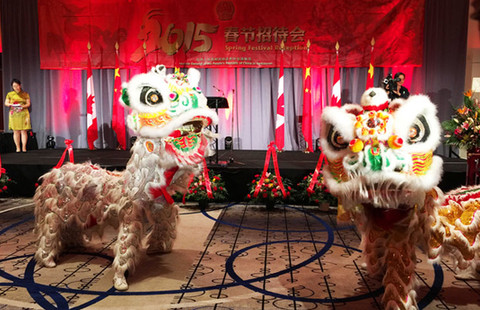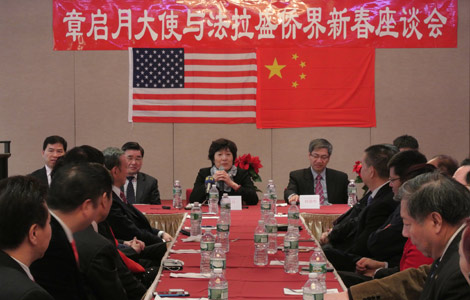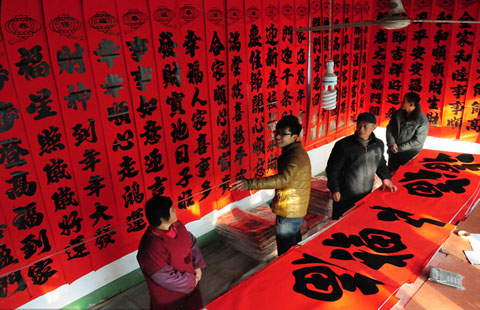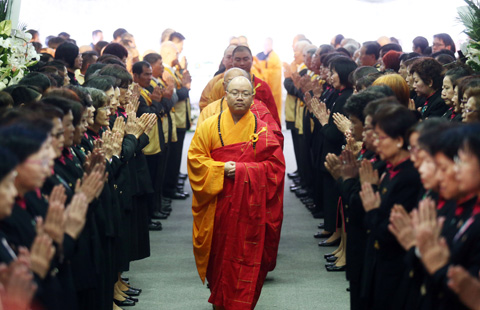Soft environment to help attract overseas talents
Updated: 2015-02-12 07:39
(China Daily USA)
|
||||||||
In a routine annual meeting with foreign experts working in China, Premier Li Keqiang promised an engaging "soft environment" at home for overseas talents.
The thresholds for introduction of foreign talents will be lowered, the formalities for investing in and starting businesses will be simplified, Chinese "green cards" will be made more accessible, and all procedures will be more transparent, he said. All for one purpose: To turn China into a favored land of opportunities for talents of all varieties.
Such an invitation is timely. For China, never before has the need for extra brainpower appeared so real and imperative.
As the conspicuous slowdown becomes a hallmark of the country's economic new normal, structural reforms and transformation of the growth mode have increasingly been embraced as the proper approaches to upgrading the quality of growth.
As labor costs surge and environmental woes worsen, low-end, labor-intensive and environment-unfriendly manufacturing is becoming increasingly out of sync with new needs.
An "upgraded version" of the economy, which has been on official agenda for quite a while, however, will not come out of nowhere. Without the support of a sizeable pool of talents, much of the country's dream of becoming a powerhouse of innovation can only be wishful thinking. Li and his colleagues know that fairly well.
Like opening-up to overseas capital, technology and management know-how in the past more than three decades, opening its arms wider to overseas talents will greatly facilitate the country's drive to improve its innovative capabilities.
Given its rich experiences from the more than 30 years of opening-up and exchanges with the outside world, this country should be able to do better when it comes to attracting overseas talents.
Generous rewards will surely be attractive. But equally important is the "soft environment" Li mentioned.
Yet, that is the most difficult part of the job. The government has come up with numerous programs to attract talents, and disbursed generously to sponsor their work. The outcomes have been less than impressive. One of the most frequently mentioned causes has been the "environment" for innovation.
That is a vague allegation that may sound ungrateful. But it would be sad if complaints about counterproductive management mechanisms remain unsettled or keep emerging.
(China Daily USA 02/12/2015 page11)

 Spring Festival reception held in Vancouver
Spring Festival reception held in Vancouver NC slayings spark Muslim outcry
NC slayings spark Muslim outcry
 Chinese navy officers find value in US visit
Chinese navy officers find value in US visit
 Consul general weighs in
Consul general weighs in
 10 destinations favored by Chinese property investors
10 destinations favored by Chinese property investors
 Spring Festival goods in the making
Spring Festival goods in the making
 New Year scenes preserved in old photos
New Year scenes preserved in old photos
 Remembering the dead on the seventh day after TransAsia crash
Remembering the dead on the seventh day after TransAsia crash
Most Viewed
Editor's Picks

|

|

|

|

|

|
Today's Top News
US has 'risen to the challenge' of fighting Ebola
Obama asks Congress to authorize military force against IS
Chinese tourists highly satisfied with Canada travel
President Xi to visit US in September
Study sees consumer confidence faltering
NBC News anchor Brian Williams suspended
US confirms death of IS-held hostage
High royalties key reason behind Qualcomm fine: NDRC
US Weekly

|

|







